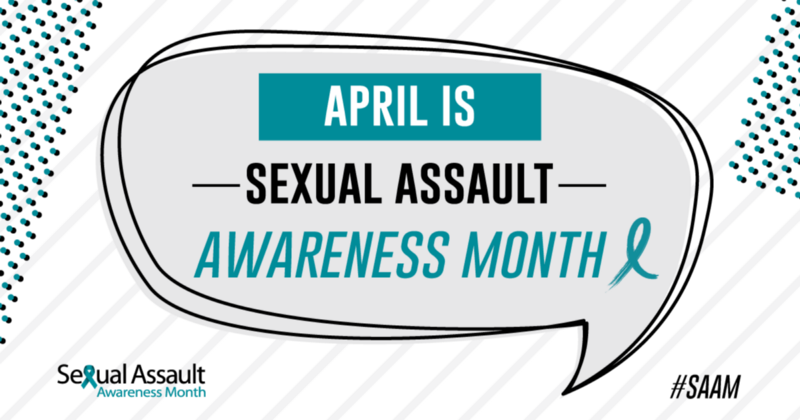We’re starting to make the link between sexual assault and sex ed. But we need to do better.
 By Zach Eisenstein, Communications Manager
By Zach Eisenstein, Communications Manager
April marks Sexual Assault Awareness Month (SAAM). And this year’s awareness efforts look a little different than in years past. In a post “Me Too” era, difficult, necessary, and life-saving conversations are happening across the country in ways that we have never seen before.
Celebrities are using their platforms to speak out about issues like sexual harassment and assault. Perpetrators of sexual misconduct are starting to be held accountable. And the epidemic of sexual violence in this country that has, for too long, been swept under the rug is finally finding its spotlight.
But, we need to do more. We need to actively work to change a culture that has, for too long, enabled offenders and silenced survivors.
Altering an entire country’s culture is a tall order. But, luckily, we already have a great starting point: sex education.
When it comes to sex education in the United States, we are failing our young people. Miserably. Right now, only 29 states and the District of Columbia mandate sex education be taught at all. And of those 29 states plus D.C., only 13 states require sex education to be medically accurate, and only one state requires instruction on consent.
Only one.
While most sexual assault conversations focus on prevention in the work place or on college campuses, we need to tackle this much earlier on. We need to start laying the foundation for understanding these issues as early as kindergarten.
Young people need to learn about concepts including: respecting boundaries; asking before touching; and who to turn to if they feel uncomfortable. And these lessons need to be taught in effective, age- and developmentally appropriate ways.
The first time a person receives a lesson about consent or sexual assault should not be during their freshman orientation at college. Because that is far too late. Not only are these complex issues best taught and learned over time, but they affect people of all ages — including children.
That’s why it is so important to arm them with the knowledge they need to stay safe and healthy.
Here’s the good news: We already have the tools needed to make this happen. Experts have developed the National Sexuality Education Standards to implement these exact concepts in K-12 schools.
And policymakers are (slowly but surely) starting to make the link between this epidemic of sexual assault and the need for educating young people about it in the classroom. This year, over 80 state-level bills have been introduced to address issues of sexual assault, abuse, harassment, and consent in state legislatures across the country.
The bad news? We’re still not doing enough. While it is encouraging to see this breadth of bills calling for policy change across the country, last year, 30 similar bills were introduced. Only a few of them were actually signed into law.
We need to get policymakers to understand the vital nature of educating young people about sexual assault in schools. And we can do that starting at the grassroots level.
In November 2017, with the help of Me Too founder and TIME Person of the Year, Tarana Burke, SIECUS launched the #TeachThem campaign. Beyond a hashtag, #TeachThem provides tangible resources for individuals to advocate for education about sexual assault, harassment, and consent in their communities.
Through step-by-step instructions for planning a local community meeting, talking points to share with state legislators, a call to Congress guide, and sample social media content, the #TeachThem toolkit provides everything needed to turn individuals into advocates.
In the words of Tarana Burke, herself: “We need to start earlier to proactively discuss the entire spectrum of violence and help shift the culture so we are preventing another generation of children from having to say, ‘me too.’ We have an incredible opportunity to do that with comprehensive sexuality education. Let’s not waste it.”
This Sexual Assault Awareness Month, let’s do more than just make people aware. Let’s make change. Let’s improve policy. Let’s #TeachThem.
If you or someone you know has been sexually assaulted, call the National Sexual Assault Telephone Hotline at 800–656-HOPE (4673) or visit online.rainn.org.

